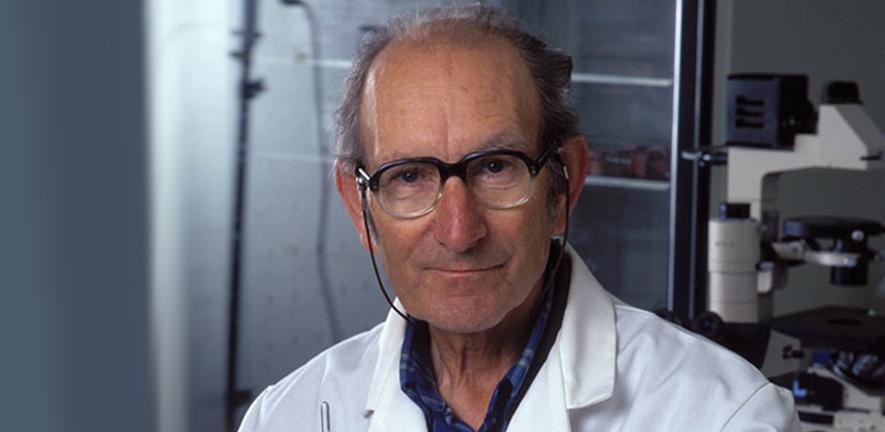
Nobel Prize in Physiology or Medicine 1984 for theories concerning the specificity in development and control of the immune system and the discovery of the principle for production of monoclonal antibodies, shared with Niels Kaj Jerne and Georges Köhler.
Department of Biochemistry PhD student (1958-1961, PhD awarded 1961).
César Milstein was born in Bahía Blanca, Argentina and studied at the University of Buenos Aires, completing a PhD on the enzyme aldehyde dehydrogenase. This led him to Cambridge to work on phosphoglucomutase with Malcolm Dixon in the Department of Biochemistry. During this period Milstein collaborated with Frederick Sanger and, having obtained a Cambridge PhD, he moved to Sanger's group in the Department.
In 1961 Milstein returned to Argentina, but in 1963 he re-joined Sanger's group, by now located in the newly-formed Laboratory of Molecular Biology at Addenbrooke's Hospital. It was at Sanger's suggestion that Milstein turned his attention from enzymology to immunology. He focused on antibodies, the proteins produced by mature B lymphocytes (plasma cells) as part of the immune response. Milstein used myeloma cells, cancerous forms of plasma cells that multiply indefinitely, to study somatic hypermutation and the mechanism by which antibody diversity is generated. In 1975 Milstein and Georges Köhler developed the hybridoma technique for the production of monoclonal antibodies, for which they shared the Nobel Prize in Physiology or Medicine in 1984 with Niels Kaj Jerne. This discovery led to an enormous expansion in the exploitation of antibodies in science and medicine.
